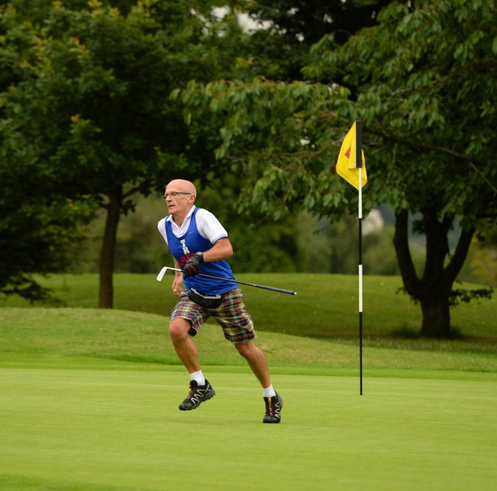Tiger Woods’ astonishing victory comes amid major report on golf participation
Tiger Woods’ 80th PGA Tour title – and his first in more than five years – came on the same day that a report in the British Journal of Sports Medicine that warns about the dangers of a decline in golf participation was published.
It’s long been known that Tiger Woods has a positive influence on spectator attendance and television viewing figures, with a knock-on effect on global golf participation. It is therefore hoped that his victory, which has been hailed by some as ‘the greatest comeback in sporting history’, will have an effect on participation levels, not least because the report encourages the golf industry to reach out to people who aren’t just older, white men.

Funded by the World Golf Foundation (WGF) and based on the findings of 342 papers, the panel of 25 international experts in public health and health policy, and industry leaders, claim that playing golf regularly can reduce the risk factors for heart disease and stroke, and it is so good for both the mind and body that it can help lead to a longer life.
Playing golf can provide moderate intensity aerobic physical activity, and it can boost older people’s strength and balance, states the report.
It said the sport is associated with good mental health and improving the overall health of those with disabilities, and compared with other sports the risk of injury is moderate.
Golf is also sociable and gets people outdoors connecting with nature, and the panel recommends that golfers spend 150 minutes a week playing the game, and preferably that they walk rather than use a golf cart.
The panel, which includes Dr Andrew Murray of the University of Edinburgh’s Physical Activity for Health Research Centre, suggested that more people might be interested in taking golf up if it was promoted as an enjoyable, outdoor activity that affords a sense of community and competitive challenge, as well as being good exercise.

The report calls for clubhouses to offer childcare facilities to make it easier for parents to play
They say that golf participation can be increased if quicker and easier versions of golf, including ‘speedgolf’, are promoted and not just the traditional 18-hole round, and that clubhouses should offer childcare facilities to make it easier for parents to play.
The researchers also advise clubs to increase the number of women’s lavatories, slash membership fees and ensure that minorities feel more welcome. They urge the industry to develop a culture ‘that will inspire more women and girls to play’.
The study also recommends building courses with fewer, shorter and easier holes.
“These outputs, if widely shared and adopted, will contribute to an improved understanding of golf and health, and aid these groups in making evidence-informed decisions and to improve health and wellbeing,” the panel said.
“Playing golf is associated with mental wellbeing benefits which can include improved self-esteem, self-worth, self-efficacy and social connections,” the report said. “The best available evidence suggests playing golf regularly is associated with increased longevity.”
More than four million Britons played golf in 2006, but by last year this number had fallen to just over 2.5 million. Membership of clubs in England has fallen from 850,000 to 652,000 over the same period, according to England Golf.
Many Britons regard the sport as overly complicated and costly, and the players as generally white professionals over a certain age. Such discrimination, the WGF warned, is leading to thousands missing out on the health benefits. These are said to include a reduced risk of heart disease, type 2 diabetes, depression and dementia.

The panel of experts say that golf participation can be increased if quicker and easier versions of golf, including ‘speedgolf’, are promoted
The report added that around 60 million people worldwide play golf at least twice a year, but players tend to be middle aged to older, male, of white European heritage, relatively well off, and living in North America, Europe and Australasia.
It said golf is often perceived as expensive, male-dominated, difficult to learn, and not a game for the young or those on the lower rungs of the social ladder.
The extraordinary comeback of Tiger Woods who, of course, does not fit the traditional profile of a typical golfer, is likely to aid the industry in its attempts to reach out to non-golfers.















The easiest, efficient & most economical way to bring the game back, is to create an easier entry system by using the new Hybrid golf ball. Promotes an updated traditional EZ-play golf format in half the time & cost with less difficulty and more satisfaction on shorter courses. Significantly reduces the long learning curve and appeals to a wider spectrum of golfer & non-golfer. It’s the same golf game on a time efficienct and enjoyable scale!
Tiger made his comeback on my birthday-so I’ll start my comeback on his birthday
Beautiful come-back from Tiger last w-end NeXT Year maybe one more Masters… Or one more US.Open…!! ⛳️